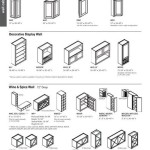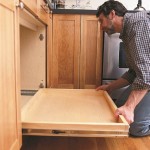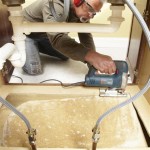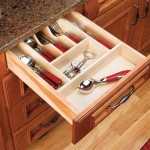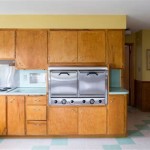Essential Aspects of Choosing the Right Sandpaper for Kitchen Cabinets
Sanding is a crucial step in preparing kitchen cabinets for painting or staining. Choosing the right sandpaper is essential for achieving a smooth, professional-looking finish. This guide will explore the essential considerations when selecting sandpaper for kitchen cabinets, ensuring an effective and efficient sanding process.
Grit: The Key Factor
Grit refers to the coarseness of the sandpaper. The higher the grit number, the finer the sandpaper. For kitchen cabinets, you'll typically need a range of grits to achieve the desired finish. Start with a coarse grit (80-120) to remove any rough surfaces or imperfections. Then, gradually move to finer grits (180-220) to smooth out any scratches and prepare the surface for painting or staining.
Material: Selecting the Right Abrasive
Sandpaper comes in various materials, including aluminum oxide, garnet, and silicon carbide. For kitchen cabinets, aluminum oxide is a popular choice due to its durability and versatility. It provides a consistent scratch pattern and can withstand the rigors of sanding. Garnet sandpaper is less durable but is suitable for softer woods and produces a finer finish.
Backing: Ensuring Support and Handling
The backing of the sandpaper provides support and allows for easy handling. Paper-backed sandpaper is affordable and suitable for light sanding. Cloth-backed sandpaper is more durable and can handle heavy-duty sanding applications. Adhesive-backed sandpaper is convenient for sanding contoured surfaces.
Size and Shape: Achieving Precision
The size and shape of the sandpaper should align with the surface you're sanding. For large, flat areas like cabinet doors, sheets of sandpaper are ideal. For smaller, intricate areas, sheets can be cut into custom shapes or sanding sponges can be used.
Dust Collection: Minimizing Mess and Health Hazards
Sanding generates dust, which can be a nuisance and a health hazard. Choose sandpaper that is equipped with a dust collection system. This can be in the form of holes or channels that allow dust to be extracted through a vacuum cleaner. Dust collection helps maintain a cleaner work environment and minimizes the inhalation of harmful particles.
Compatibility: Matching Sandpaper to Power Sanders
If using power sanders, ensure the sandpaper you select is compatible with the sander's design. Some sanders require specific sizes or types of sandpaper to function properly. Matching the sandpaper to the sander prevents damage to the tool and optimizes performance.
Conclusion
Choosing the right sandpaper for kitchen cabinets is essential for a successful sanding process. By considering factors such as grit, material, backing, size, shape, dust collection, and compatibility, you can select sandpaper that meets your specific needs. With the right sandpaper, you can achieve a smooth, professional-looking finish on your kitchen cabinets, transforming them into a stunning focal point in your home.

A Guide To Painting Kitchen Cabinets Norton Abrasives

A Guide To Painting Kitchen Cabinets Norton Abrasives

The Best Paint For Cabinets 2 Cabinet Girls
Refinishing Kitchen Cabinets A Beautiful Mess

Sanding Techniques For Cabinets Get The Perfect Finish Cabinet Doors N More

How To Paint Kitchen Cabinets A Step By Guide Confessions Of Serial Do It Yourselfer

How To Paint Kitchen Cabinets So They Look Amazing And Last Weekend Diy Projects

How To Paint Your Kitchen Cabinets The Prairie Homestead

How To Paint Pressed Wood Kitchen Cabinets Choice Cabinet

How To Paint Kitchen Cabinets Without Sanding Or Priming
Related Posts



